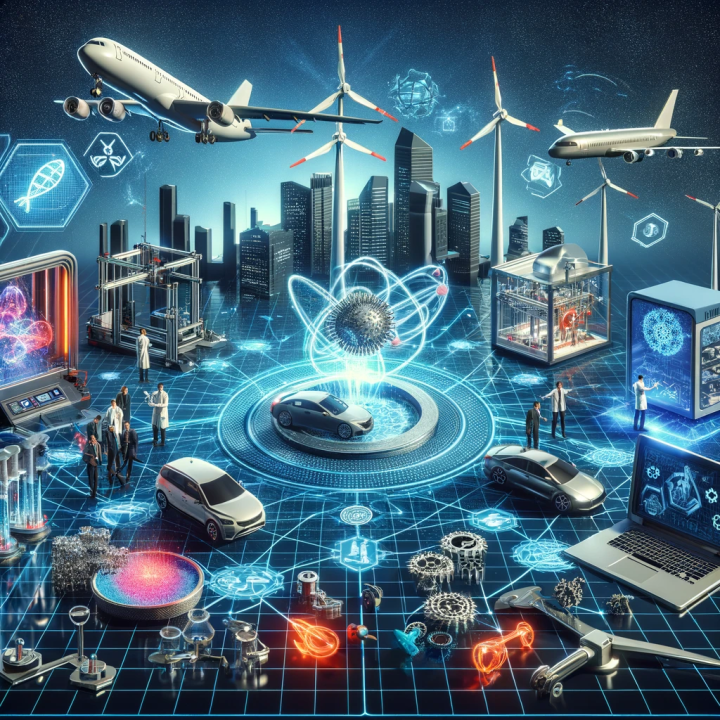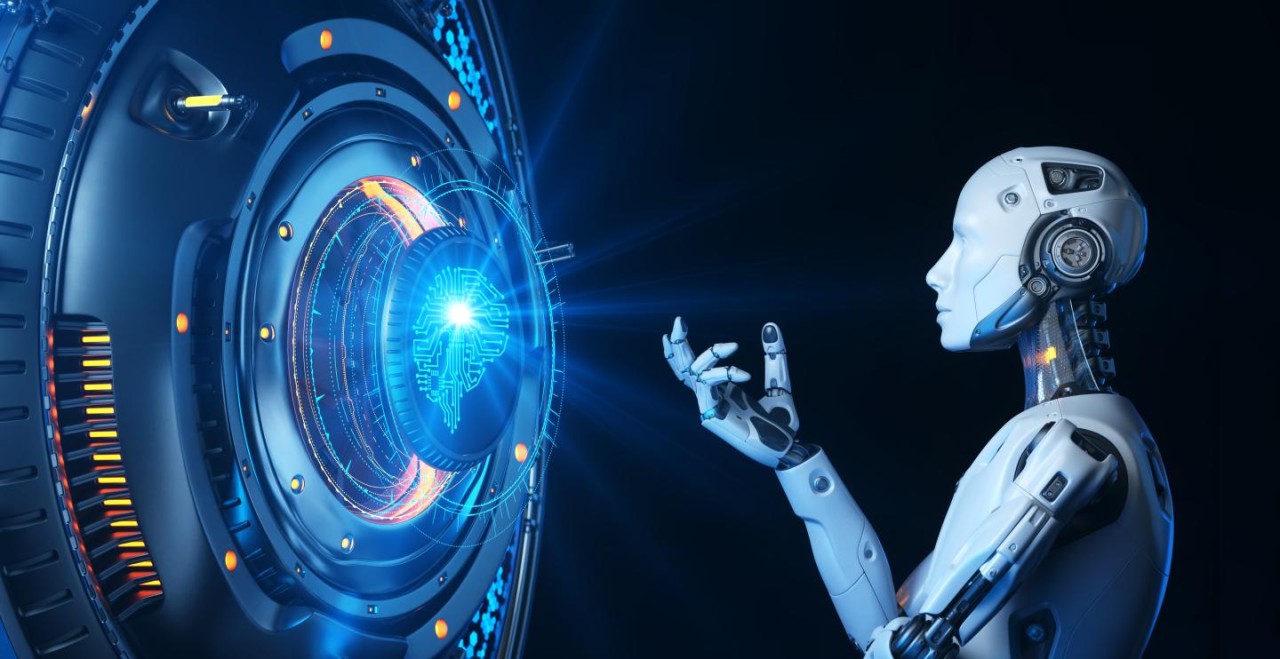Artificial Intelligence (AI) is no longer a concept that belongs to tomorrow, but is an ongoing reality with increasing potential to revolutionize businesses in all over countries. That is why with the constant growth of the AI capabilities the change becomes more significant and covers such spheres as healthcare, finance, manufacturing, and education. In this blog, I am going to discover how AI is revolutionizing itself for business and what it has in the horizon.

AI in Healthcare: Transforming Patient Medicine and Health Research
Perhaps no industry has been impacted more by AI than that of healthcare. Implemented as IT support solutions, AI tools are helping medical practitioners to make clearer diagnoses and create better treatment regimens, as well as helping patients receive better care and services.
- Medical Imaging and Diagnostics: Cancer, heart diseases, neurological disorders – all are diagnosed through medical imaging and deep learning algorithms dramatically increase diagnostic accuracy given vast amounts of data. For instance, current AI systems can diagnose radiographic images, including X-rays, MRIs and CT scans quicker than radiologists.
- Personalized Medicine: AI is helping design treatment programs based on a patient’s health history, genetic makeup, as well as other factors that may influence their well being. Even more, the AI approach can predict an optimal course of therapy, which aids doctors concerning their decision-making process.
- Drug Discovery: AI is playing the role of shortening the drug discovery chain through a systematic examination of biological data for drug candidates. That minimizes the time and money that have to be spent in getting new drugs to the market, hence saving lives.
Pros for the future of AI in healthcare are even more significant: completely autonomous robotic surgeries, AI-aided virtual doctors for remote diagnosis and treatment and making healthcare more available.
AI in Finance: Improving Outcome and Risk Control
For finance, this aspect is important as AI helps to adapt different processes, minimize risks, and enhance serving the customers. The operational efficiency of the financial institutions; AI with the capability of analyzing number of data and the ability to identify the pattern is proved.
- Fraud Detection: AI systems work in real time to qualitatively analyze financial transactions, to take note of possible fraudulent activities. Machine learning models can learn quickly from past experiences about deriving risky patterns much faster than the current systems.
- Algorithmic Trading: In the stock trading area, AI is dramatically changing investment management practices through the ability to trade in accordance with the shared strategic use of investment firms to identify and take advantage of real time data. This approach reduces human interferences and enhances gains since it is a mechanical process.
- Customer Service and Personalization: Customers’ queries in banking are being answered by artificial intelligence in the form of chatbots, and virtual personal assistants through instant messaging. In addition, due to the analysis of customer behavior and financial record, AI solutions provide customers with an individual financial plan and assist in the better management of personal funds.
Thus, in the future, artificial intelligence will probably become even closer to financial management by providing more reliable and individual solutions and minimizing the participation of people and their mistakes in the mechanism of performing basic operations.
AI in Education: Blended Learning and Autistic Instruction
Education sector is also not left behind as it is challenged to change the ways that students learn as well as the ways that instructors facilitate the learning process. AI being applied in Personalized learning, reducing administrative burden and increasing education access world over.
- Personalized Learning: Technological based learning systems leverage on artificial intelligence to allow the student to learn at his or her own ability level. Through analyzing a student’s performance, AI can suggest what type of content the student might need, recommend material, and give feedback. This in manner helps to make the teaching process faster and effective as well as allowing the students to have fathom understanding at their own pace.
- Intelligent Tutoring Systems: Intelligent assistants embedded in Virtual Learning Environment can help students by answering their questions, explaining and offering more problems to solve. These systems can afford support round-the-clock to spur up students learning especially students in hard to reach regions.
- Automating Administrative Tasks: AI is helping educators in tasks like marking students’ papers, arranging classes as well as keeping track of their records. This makes it possible for the teachers to have most of their time teaching and even even relating with their students.
AI in the future may revolutionize the educational system by incorporating first-person virtual and augmented reality learning powered by an AI system as well as offer students around the world the same experience as the local one.
AI in Retail: Redesigning Customer Interactions
Retail has benefited from AI through improving customer experience, supply chain management and sales through application of artificial intelligence marketing.
- Personalized Shopping Experiences: While browsing, purchasing habits of a customer, past happenings, and even his preferences are all valued by AI as it tries to recommend products that the customer may like. This in turn makes the customer happier and improves the ability to sell their products since Roverer knows what products the customers are most likely to purchase or use.
- AI-Powered Chatbots: Businesses are applying AI bots to respond to customer service concerns, offer products and help with their purchase. Since these chatbots are available to provide real-time 24/7 support, customers’ experience enhanced and a significate reduction in human support agents is obtained.
- Inventory Management and Demand Forecasting: Sales data coupled with external factors such as the trends in the market and the weather are used by AI to forecast product demand. This aids the retailers to manage their stocks by minimizing positions of having too much stock or having inadequate stock.
While AI is already becoming a part of the retail landscape, its development opens the door to even more complex virtual shopping companions, stores without checkouts, and improved AR applications to make it easier for a customer to imagine how a certain product would look like on them.
The Future of AI: Challenges and Opportunities
AI is transforming industries and is, however, not without its controversies. Using big data, data privacy is an issue affecting the ethics of AI use, the incorporation of bias in algorithms and the impact on employment are some of the biggest challenges affecting the ethics of AI use. But, as with any technology, the benefits which AI bring are definitely worth the risks they pose. Through process optimization, efficient decision making and great customer experience, application of AI technology has the capacity to reap anew heights of creativity and efficiency across all fields.
In the future, the application of AI may deepen , and step into new field such as general AI where intelligent machines will possess intellectual ability as like human beings. AI engineering that will enable artificial to be introduced into the features to learn, to reason, and to interact in a quasi-human way will keep the progress going.
